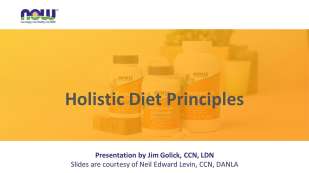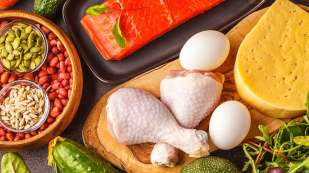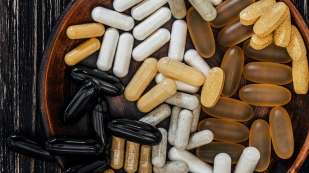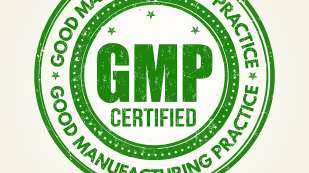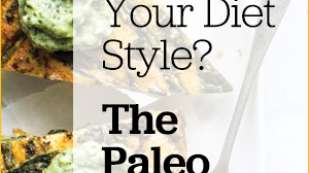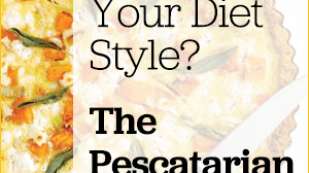Use coupon code MOISTURIZER with your purchase of $40 or more for a free†
Blemish Clear MoisturizerMediterranean Diet is One of the Easiest and Healthiest to Follow
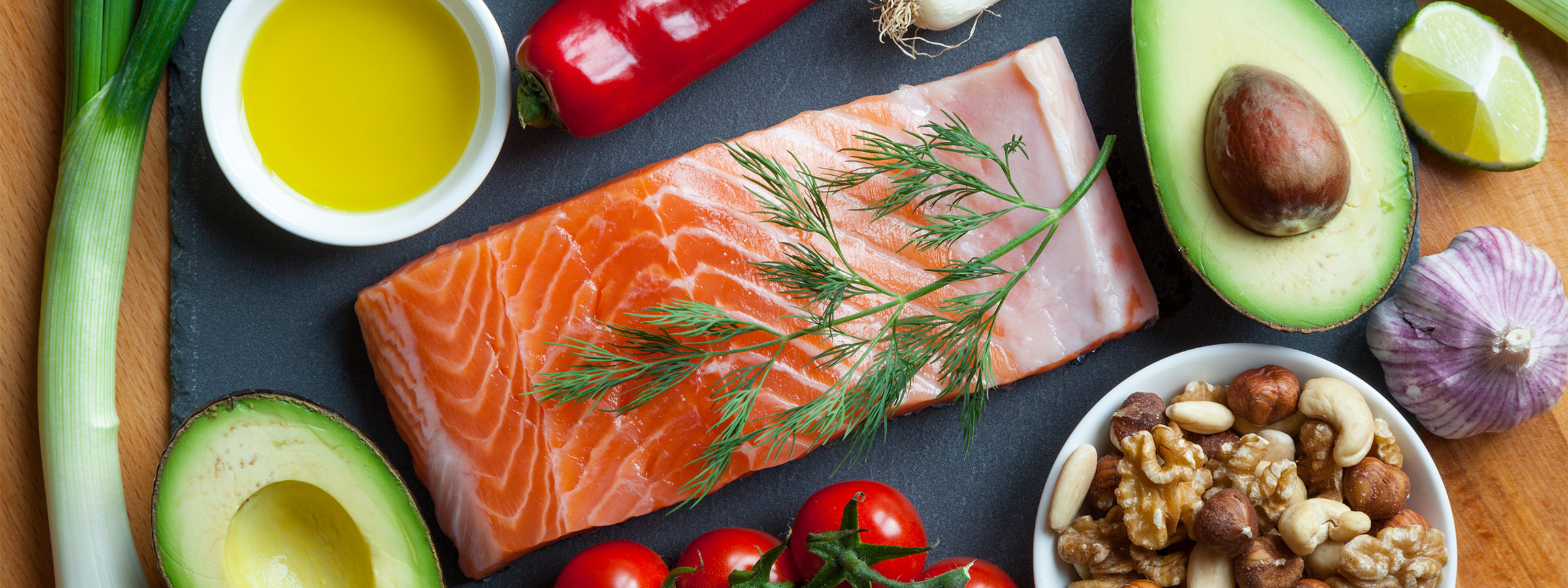
What Does a Day of the Mediterranean Diet Look Like?
You’ve probably heard of the Mediterranean Diet. And perhaps it brings to mind happy folks sitting beachside in the Mediterranean, snacking on nuts and apricots. But what is the Mediterranean Diet, really? Can it help you be healthier? And most importantly, is it easy to stick to?
First things first. The diet is one of the easiest to follow. In fact, it’s really more of a lifestyle than a diet, and this is because you can follow it for life and not feel deprived. At all. The Mediterranean way of eating typically includes veggies, fruits, fish, olive oil, nuts, beans, legumes, and a moderate amount of red wine, dairy, and eggs—and it can boost your health in so many ways. It may help with weight loss, and it may also help lower your risk of heart disease, diabetes, and Alzheimer’s.
- Wondering what to eat when going Mediterranean?
- What supplements complement this diet?
- Sample Mediterranean Diet Meal Plan
Wondering what to eat when going Mediterranean?
Fruits and veggies
On the Mediterranean diet, you’ll be eating lots of fruits and vegetables. Here’s why. Those vibrant colors come from health-helping phytonutrients. And fresh fruits and veggies are full of hydrating water. After all, many fresh produce contain 90 percent or more water! Dried fruit without added sugar is plenty good for you, too.
Try it: Organic Dried Organic Apricots, Organic GoldenBerries, or shop all Dried Fruit
Nuts
Love noshing on almonds, pistachios, pecans, and walnuts? Good. Within moderation, these are staples of the Mediterranean diet because they’re full of good-for-you poly- and monounsaturated fats. These nuts also offer filling fiber and plant protein to help keep you fuller for longer.
Try it: Raw Almonds, Raw Pecans, or shop all Nuts & Seeds
Olive oil
With heart-healthy monounsaturated fats, olive oil is a Mediterranean Diet staple for good reason. Regularly consuming the oil may be great not only for heart health but also for overall health and well-being, per a review study.
Try it: Organic Extra Virgin Olive Cooking Oil
Whole grains
Whole grains like quinoa, brown rice, sorghum, and couscous provide good-for-you fiber. This fiber helps to keep you satisfied for longer and also may help maintain digestive health.
Try it: Organic Quinoa, Organic Sprouted Brown Rice , or shop all Grains, Rice & Beans
Fatty fish
The Mediterranean is the area near the Mediterranean Sea, and so it makes sense that fatty fish are a staple of the eating style. Look to fish such as salmon, sardines, and herring. They offer the omega-3s EPA and DHA, beneficial fats that may help support cardiovascular and brain health. Aim for at least two 3.5-ounce servings of cooked fatty fish a week. If you’re vegetarian, you can take flax or hemp seed oils, which have alpha-linolenic acid, from which the body can make EPA and DHA.
Pulses
If you didn't know, pulses are chickpeas, lentils, beans, and dried peas—and they’re a staple of the Mediterranean diet. Ever had Tuscan white beans or three-bean salad? Pulses provide a good amount of plant protein and an excellent amount of fiber. Adding just a half-cup serving of pulses to your meals three times a week may help keep your weight in check as well as help maintain overall health.
Try it: Mung Beans
What supplements complement this diet?
If you’re eating a balanced diet, you may still need a handful of supplements. It’s a good idea to talk over specific needs with your physician or registered dietitian nutritionist (find one at eatright.org). In general, many people can benefit from the following:
Vitamin D
This vitamin can be difficult to get from food sources alone, so you might need a supplement. And vitamin D assists your body in absorbing calcium, so it can help keep your bones strong.* Because the vitamin is fat soluble, you’ll best absorb it when you pair the vitamin with a meal that contains a source of fat, such as olive oil or avocado.
Try it: Vitamin D3 5,000 IU Softgels, or shop all Vitamin D supplements
Omega-3s
Fatty fish such as salmon provide the omega-3s DHA and EPA. These long-chain omega-3 polyunsaturated fatty acids benefit your health in many ways. If you don’t regularly eat fatty fish, it’s a good idea to take an omega-3 supplement.
Try it: Ultra Omega 3-D™ Fish Softgels, or shop all Nutritional Oils
Vitamin B12
Because many good sources of this vitamin are animal based, vegetarians and vegans can be low in this vitamin.—which is important for production of red blood cells and maintenance of the central nervous system.*
Try it: Methyl B-12 5000 mcg Veg Capsules or shop all B Vitamins
Sample Mediterranean Diet Meal Plan
Ready to get eating? Here’s a sample 1,800-calorie Mediterranean Diet meal plan.
Breakfast
Hummus toast:
- 1 slice whole-grain toast, topped with
- 3 tablespoons hummus
- 2 poached eggs
- 2 teaspoons chopped fresh dill, and black pepper to taste
Side salad:
- 1 cup mixed greens, topped with
- ⅛ cup halved grape tomatoes
- ¼ avocado, sliced
- drizzled with 1½ teaspoons Avocado Oil and the juice from half a lemon
Snack
- 2 tablespoons Almonds
- 1 cup mixed berries, topped with a dash of nutmeg
Lunch
Grain bowl:
- ¾ cup no-salt-added canned white beans, rinsed and drained, combined with
- ½ cup cooked Brown Rice
- 1 cup arugula
- ⅛ cup diced red onion
- 10 kalamata olives
- 2 teaspoons Olive Oil
- 2 teaspoons balsamic vinegar
Snack
- Yogurt bowl: 6 ounces plain low-fat Greek yogurt, combined with
- 1 tablespoon natural peanut butter
- ½ cup dried Apricots diced
- a dash of cinnamon
Dinner
- 3½ ounces roasted salmon
- ½ cup cooked quinoa, combined with
- 2 tablespoons chopped onion sautéed with low-sodium vegetable broth, and black pepper to taste
- 6 asparagus spears, sautéed with
- 1½ teaspoons Olive Oil
*These statements have not been evaluated by the Food and Drug Administration. These products are not intended to diagnose, treat, cure or prevent any disease.


